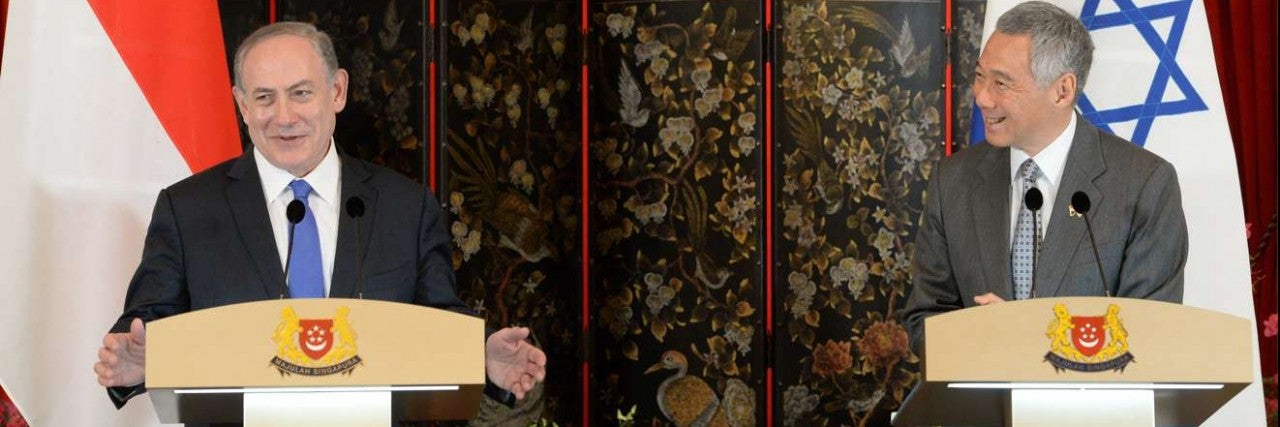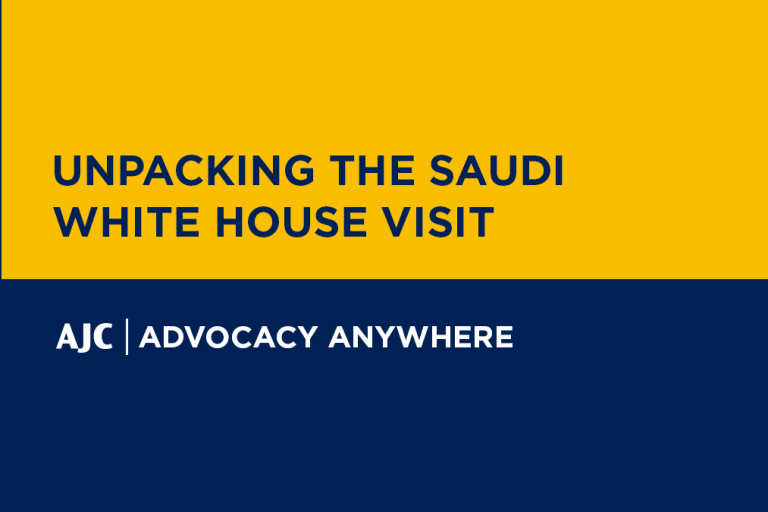August 10, 2018
By Nissim Reuben
Israeli Prime Minister Benjamin Netanyahu’s “Pivot to Asia” policy has yielded stunning dividends in bilateral relations with two Asian behemoths, China and India. Some of that success has spread to member countries of the Association of South East Asian Nations (ASEAN) in the form of significant interest in tech, research and development, agriculture, and strategic cooperation with the Jewish state. However, several ASEAN countries keep their Israel ties away from the public eye and vote in favor of anti-Israel resolutions at international forums. Here’s what you need to know about this important group of nations and their ties with Israel and the Jewish people.
What is ASEAN?
Over 640 million people live in the diverse group of ten nations that make up ASEAN: Brunei Darussalam, Cambodia, Indonesia, Lao PDR (Laos), Malaysia, Myanmar, Philippines, Singapore, Thailand, and Vietnam. It includes democratic, communist, and monarchist states, with Muslim, Buddhist, and Catholic populations, each at different stages of economic and social development. Yet ASEAN countries are bound together through musyawarah (consultation) and muafakat (consensus), known colloquially as “the ASEAN way.” This is a concept that any external nation must understand before engaging with Southeast Asia.
Formed in 1967, ASEAN celebrates its 51st birthday this month. It acts to strengthen the cooperation between geographically connected countries. It does not have the economic influence of a customs union like the EU or the military clout of an alliance like NATO, but it is a global hub of manufacturing and trade and one of the fastest-growing consumer markets in the world. Many countries, including Israel, have been striving to expand economic, commercial, strategic, and people-to-people ties with it.
Israel and Singapore
Israel established diplomatic relations with Singapore in 1969, yet ties between the countries were covert. Even as Israel assisted the buildup of Singapore’s armed forces, Singaporean officials, eager to avoid the sensitivities of Malaysia and Indonesia, would refer to Israeli defense experts as “Mexicans.” In 1986, then Israeli President Chaim Herzog visited Singapore, and nearly 30 years later President Reuven Rivlin was present for the funeral of Singapore’s first Prime Minister, Lee Kuan Yew. Finally, in 2016, Prime Minister Lee Hsien Loong visited Israel, a bold step that signaled a strengthening relationship. In 2017 Prime Minister Benjamin Netanyahu reciprocated and became the first Israeli Prime Minister to visit Singapore, where he declared his own “Pivot to Asia.” During that visit, Prime Minister Lee Hsien Loong said that Israel and Singapore were “old friends,” ending the years of cloaked interactions between the states and making them public.
Singapore-Israel bilateral trade is worth US$ 1.5 billion (as of 2016). SingTel and Temasek (Singapore’s state-owned investment company) have invested in Israel while many Israeli start-ups use Singapore as a base for investments elsewhere in Asia. Hoping to build on its roots as a global financial hub, Singapore has been seeking Israeli assistance to establish sustainable venture capital and develop local start-ups. If permitted to utilize Saudi airspace (similar to the permission given to Air India in March 2018), Singapore Airlines may begin non-stop flights to Tel Aviv, tapping into the large number of Israeli business and leisure travelers interested in flying to Asia and Australia.
Israel and the Philippines
Israel’s robust defense and economic relations with the Philippines date back to 1947, when the Philippines was the only Asian nation to vote at the UN in favor of the creation of the state. President Rodrigo Duterte is planning to visit Israel in September 2018. Annual bilateral trade is at US$ 175 million (as of 2016), and 23,500 Filipinos travelled to Israel for tourism and work in 2017. Filipino workers comprise between 30,000 – 50,000 of the estimated 300,000 total expatriate workforce in Israel.
Israel and Thailand
People-to-people ties between Israel and Thailand are very strong. Nearly 22,000 Thai migrant workers are employed in Israel. Thailand is the most popular destination for young Israelis travelling after their military service. El Al flies seven times a week nonstop to Bangkok. Agricultural, security, and commercial ties are continually growing, with US$ 1 billion (as of 2016) in annual bilateral trade between the countries. In February 2017, Thailand hosted the first ever Southeast Asia – Israel Security Summit in Bangkok, bringing together Israeli, Thai, and other Southeast Asian experts and companies in cyber and homeland security with the aim of fostering long-term collaboration.
Israel and Vietnam
Diplomatic and commercial ties between with Vietnam, established in 1993, have steadily grown, and they received a tremendous boost from President Reuven Rivlin’s visit in March 2017, the first ever by an Israeli leader. Annual bilateral trade is worth over US$ 700 million (as of 2016) and a Free Trade Agreement in being negotiated. Over 2,000 Vietnamese students are currently studying in Israel and the two countries cooperate closely in agriculture, information technology, and biotech.
Israel and Indonesia
While Indonesia has been a strong supporter of the Palestinian cause, it has also maintained informal humanitarian, interfaith, and trade relations with Israel. Yahya Cholil Staquf, secretary general of Nahadlatul Ulama, the world’s largest Muslim organization, who is also a member of President Jokowi’s Advisory Board (Watimpres), visited Israel in June 2018 to speak at the AJC Global Forum. While there, he and his colleagues also met with Prime Minister Benjamin Netanyahu, who called for stronger ties and more exchanges between Israel and Muslim countries, particularly Indonesia. Yahya referred to former Indonesian President Abdurrahman Wahid’s visits to Israel and his speech at the AJC Global Forum in June 2002. AJC has also brought Indonesian journalists and disaster management experts to Israel through AJC Project Interchange. Bilateral trade (through third countries such as Singapore) is estimated at approximately US$ 163 million.
Israel and Malaysia
Although Israel’s relations with Malaysia are icier, Intel sends nearly US$ 600 million worth of technology exports annually to Malaysia from its Israeli factories. In February 2018, David Roet was the first Israeli diplomat since 1965 to visit Malaysia, where he attended the World Urban Forum in Kuala Lumpur. He reported that Malaysia would be a “very tough nut to crack” for Israel and his hosts made it clear that he was invited only because UN-affiliated events require invitations to all representatives of UN member states.
Israel and Myanmar
Myanmar and Israel gained independence from Great Britain in the same year, 1948. Myanmar was also the first Southeast Asian country to recognize Israel, in 1953. Two years later, its first prime minister, U Nu, was the first foreign prime minister to visit Israel. Prime Minister David Ben Gurion visited Myanmar for two weeks in 1961, the longest overseas trip by any sitting Israeli prime minister. Other Israeli leaders who have visited Myanmar are former President Yitzhak Ben-Zvi and former Foreign Ministers Moshe Sharett, Golda Meir, Abba Eban, Moshe Dayan, and Shimon Peres. Through its Mashav International Development Program, Israel has provided significant assistance to Myanmar’s agriculture, dairy farming, disaster management, education, and health sectors. The Israeli government and Israeli NGOs provided significant humanitarian assistance to Myanmar during Cyclone Nargis in 2008.
In response to the Rohingya crisis, Israel has ceased sales of military equipment to Myanmar.
AJC continues to engage with these countries to support U.S. and Israeli interests, to discuss issues of mutual concern, and advocate on behalf the interests of the American Jewish community.


